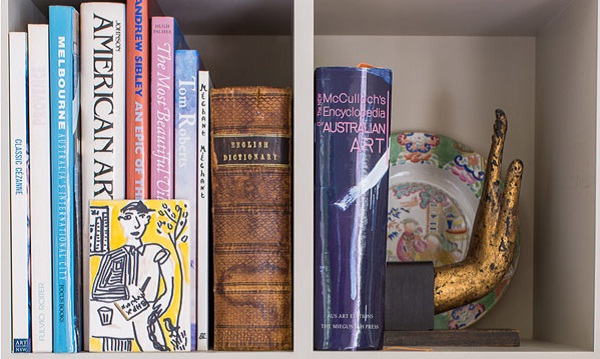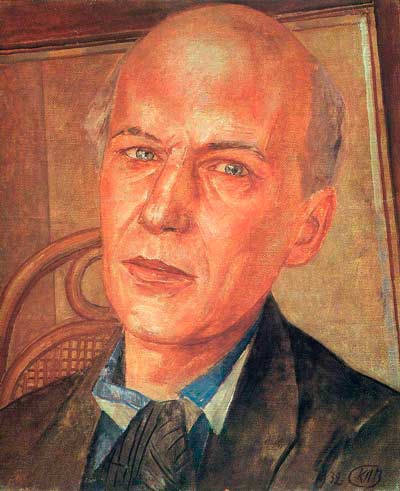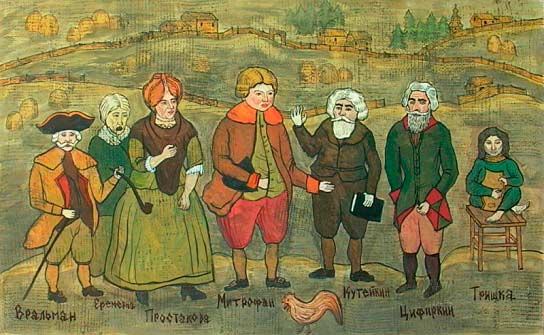“The Brothers Karamazov”
 Dostoevsky writes not a philosophical treatise or a theological system, he writes a novel. Religious-philosophical material is introduced into the framework of the romantic genre and is developed according to its laws. A tense-dramatic plot is being built, in the center of which stands a mysterious crime; ideological masses are involved in a whirlwind of action and, colliding, cause spectacular explosions. In The Brothers Karamazov, the religious mystery is paradoxically combined with a criminal novel. For all its philosophical depth, it is one of the most fascinating and popular works of Russian literature.
Dostoevsky writes not a philosophical treatise or a theological system, he writes a novel. Religious-philosophical material is introduced into the framework of the romantic genre and is developed according to its laws. A tense-dramatic plot is being built, in the center of which stands a mysterious crime; ideological masses are involved in a whirlwind of action and, colliding, cause spectacular explosions. In The Brothers Karamazov, the religious mystery is paradoxically combined with a criminal novel. For all its philosophical depth, it is one of the most fascinating and popular works of Russian literature.
The slenderness of the architectonics corresponds to the workshop construction technique. The novel begins with a brief pre-history. In the first book (“The Story of a Little Family”) the necessary information is given on landowner Karamazov and his three sons. Book of the second (“Inappropriate meeting”), the exposure of characters and plot intrigue. The main characters are represented all together in a dramatic scene. Without preliminary explanations and descriptions, we immediately put into action. In the cell of the elder Zosima, the first clash takes place between the old man Karamazov and Dmitry; Fyodor Pavlovich is characterized by his cynical anecdotes, blasphemous antics and “scandal”; Ivan – his article about the church and the idea of the impossibility of loving humanity; starets Zosima – with teachings and perspicacity (bow to Dmitry); The “scandal” anticipates the tragic denouement of the novel.
“Dmitry Fedorovich! suddenly Fyodor Pavlovich suddenly screamed with some sort of voice, if only you were not my son, I would have called you to a duel at the same moment … with pistols, at a distance of three steps … through a handkerchief! ” And Dmitry in anger utters the fateful words: “Why does such a person live?” The enmity between father and son is shown immediately in higher tension. The catastrophe is not only foreboding, but also predicted: Fyodor Pavlovich responds to Dmitry’s words – “Do you hear, do you hear, you monks, father’s killer?”
In the same scene, three lines of intrigue are dramatically introduced. Karamazov’s father angrily slanders his son, in a perverted form depicting his love affair with Katerina Ivanovna, his passion for Grushenka, and the insult of Captain Snegiryov. It is in what passionate and violent tone this exposition is expounded. “The Holy Father,” cried Fyodor Pavlovich, “believe it, you fell in love with the noblest of the maidens, of a good home, with fortune, the daughter of the former boss, brave colonel, honored, who had Anna with swords around her neck, compromised the girl with a hand offering, now she’s here, now she is an orphan, his bride, and he, in front of her eyes, walks to one of the local seductress here. But at least this seducer lived, so to speak, in a civil marriage with one respectable person, but an independent character, an impregnable fortress for everyone … And Dmitri Fyodorovich wants to open this fortress with a golden key, for which he now stands above me and wants to I have to wreck money “…
And further on Snegirev: “Gentlemen, imagine: there is a poor, but respectable man, a retired captain, was unfortunately dismissed from service, but behind the scenes, not in court, retaining all his honor, is burdened with a large family. Three weeks ago, our Dmitry Fyodorovich in a tavern grabbed him by the beard, pulled him out onto the street for this very beard, and in the street publicly beat him. ”
Dmitry’s tragedy, with its turbulent upheavals, filling the novel, is shown to us in the father’s perception distorted by hatred. Mysteriousness is immediately created around her, increasing the emotional stress of the novel. The topic of captain Snegirev prepares the topic for schoolchildren and Ilyusha: Dmitry’s sin will be redeemed by Alyosha.
The presentiment of the inevitable clash between the old man Karamazov and Dmitry is intensified in the scene between Alyosha and Rakitin (“Seminarist-careerist”). Alyosha’s friend says about the old bow to the elder Dmitry: “In my opinion, the old man is really perspicacious: he got a grip of criminality. Stinks at you … In your family, she will be this criminality. It will happen between your brothers and your rich father. ” And Rakitin makes Alyosha confess that he himself thought about “criminal activity”. “See, see? – he triumphs. – Today, looking at dad and at brother Mitenka, thought about a crime? Therefore, am I not mistaken? ”
Dmitri’s image is distorted by his rival father Fyodor Pavlovich; the image of Ivan is also a rival – Rakitin. The envious and proud seminarist portrays Ivan as a mean-spirited schemer, “sitting in a raspberry” and beating his rich fiancee from his brother. The reader is again given a riddle: Ivan’s figure acquires the features of deceit and ambiguity.
In the third book (“Voluptics”) the conflict between Fyodor Pavlovich and Dmitry is revealed in all its depth. Cash calculations are only a pretext; rivalry is due to Grushenka — only an external reason for the struggle: two voluptuous men clashed; The “earthen Karamazian power” has risen to itself. Immeasurable, unrestrained, insane, she sweeps away all obstacles and “oversteps” all borders.



